Baby David’s giant battle: Boy born without working kidney is one step closer to transplant
This holiday season, the Detwiler family is grateful they got the news they’ve been waiting for since before Baby David Detwiler was born more than 2½ years ago.
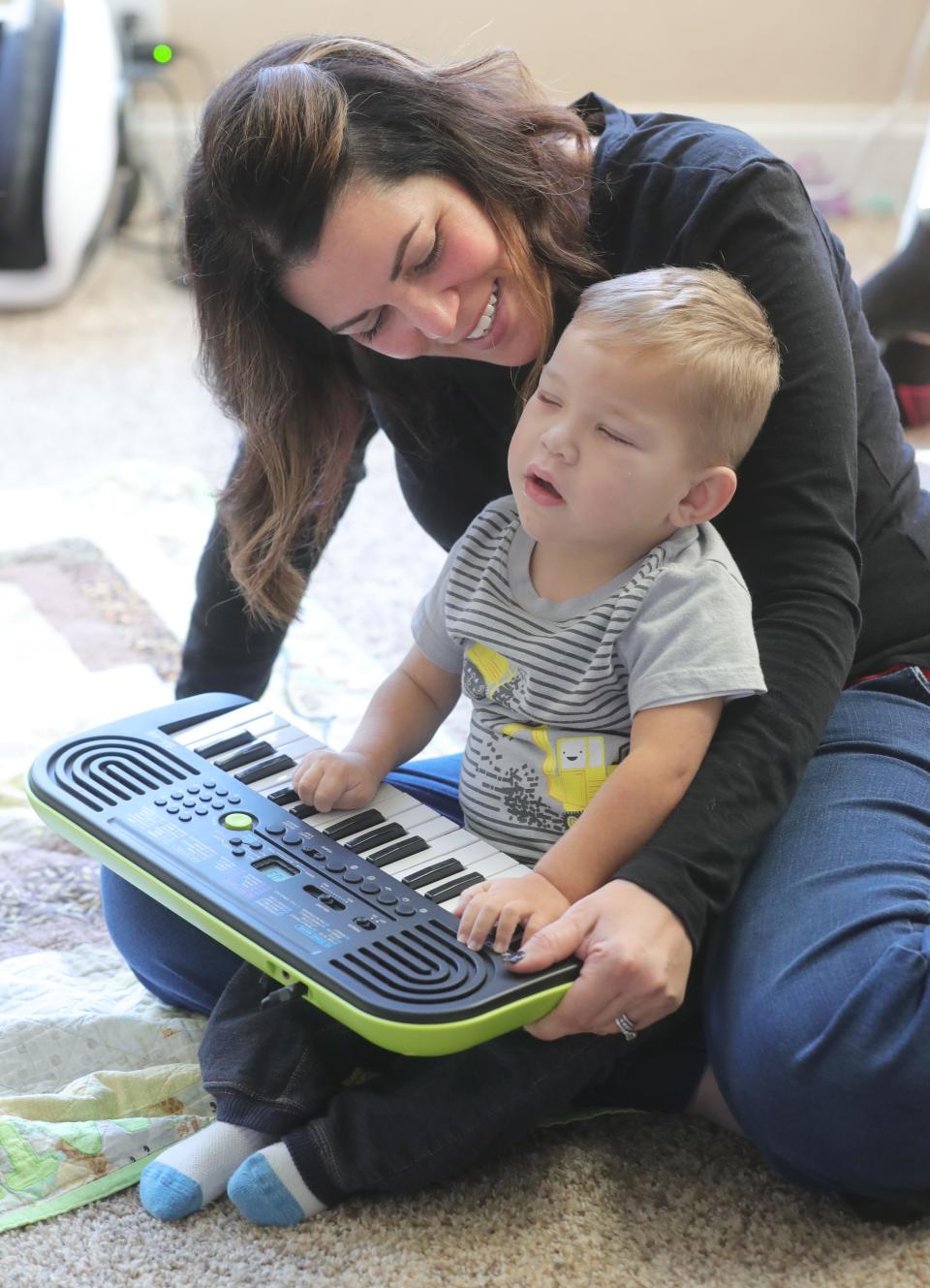
He has been approved to undergo a kidney transplant at Cincinnati Children’s Hospital.
“This amazing miracle has shown us his strength, fight and determination since his very first breath,” his mother, Carlla Detwiler, shared in a Facebook post on Oct. 1 sharing the news. “He’s amazing and I am thankful for every single day that we have with him. He has taught me more in these last two and a half years than I have ever learned in my life.
“We are excited to share with you all David’s next chapter ... he has gotten his kidney transplant APPROVAL!”
Day 1, Oct. 2019 Baby David story: Parents' faith, science help Massillon boy beat odds
Day 2, Oct. 2019 Baby David story: Family adjusts to daily challenges for baby boy
Nov. 2020 Baby David update: Baby David's giant battle: Family thankful for son who faces more hurdles
Dec. 6, 2021 update:'A Christmas miracle': Baby David gets a kidney transplant
Dec. 9, 2021 update: Baby David's Giant Battle: Massillon toddler is doing 'phenomenal' after kidney transplant
Dec. 2022 update:Baby David's Giant Battle: 'They gave David the gift of life'
But the journey to his kidney transplant is not a straight one, just as his journey to birth and toddlerhood has been filled with many twists.
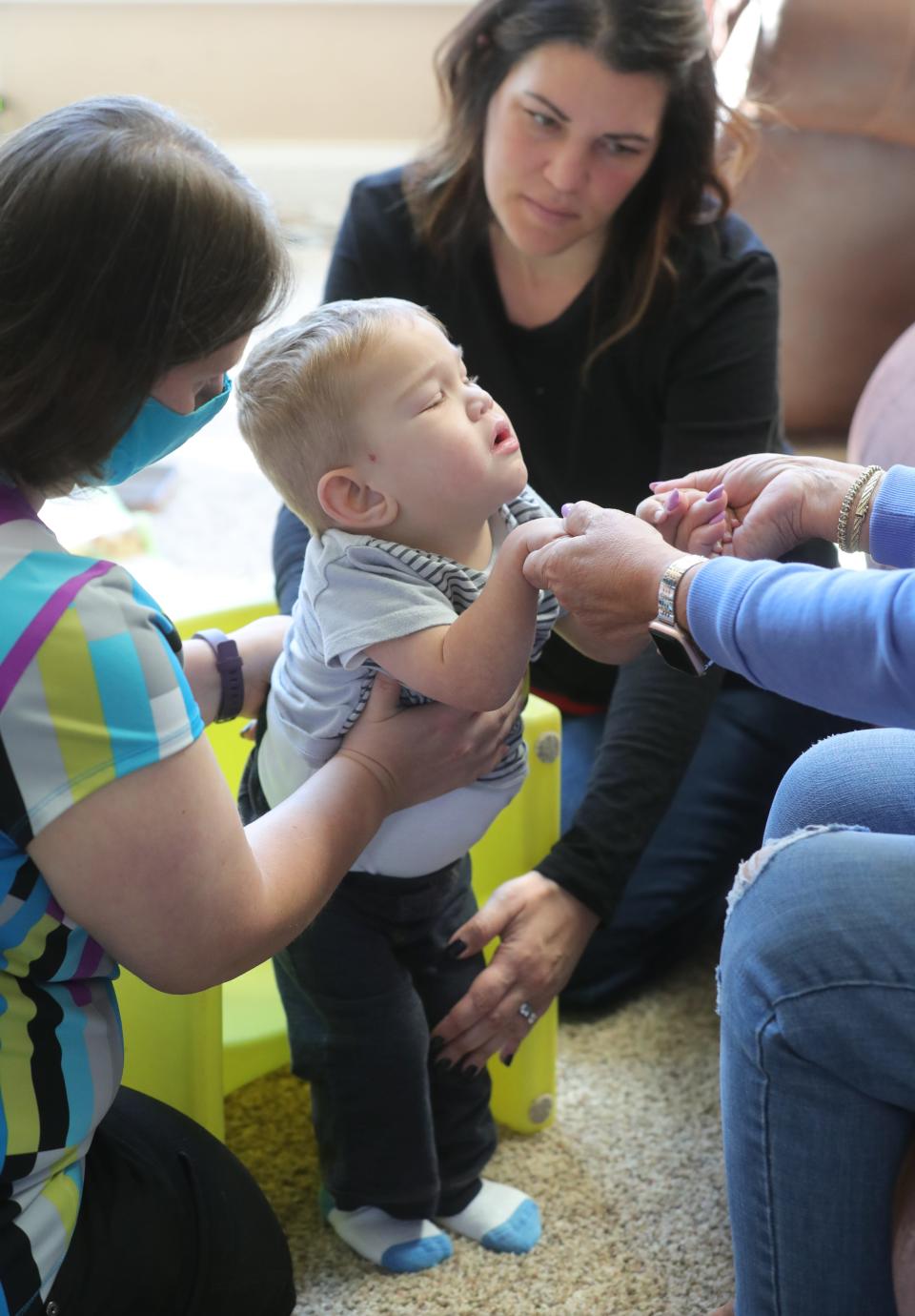
David’s dad, Brad Detwiler, had really hoped he would be a match to give his kidney to his son, but recently was eliminated as a potential donor during the screening process because their blood types do not match. Mom Carlla is diabetic so she also was ruled out.
Related donors make for the best potential matches but must be between the ages of 18 and 55, said Jason Huff, director of transplant services for Cincinnati Children's Hospital.
Brad’s sister and Carlla’s brother are being tested. If they do not match, the search will start for a nonrelated donor or a deceased donor from a national registry. An altruistic donor, or someone who is not related to the donor, must be 25 to 55, Huff said.
Kidney care started before birth
Baby David was featured in a two-day series in the Beacon Journal in October 2019. The stories chronicled how his parents discovered before his birth that their fourth child had no functioning kidney. They were told to terminate the pregnancy or carry the baby to term to potentially get a few minutes before he died because he would not have fully developed lungs to breathe.
Instead, Carlla found doctors at the Cincinnati Children's Fetal Care Center, a collaboration of Cincinnati Children’s Hospital Medical Center, University of Cincinnati Medical Center and TriHealth, who agreed to treat her with a procedure called amnio infusion.
For 10 weeks, Carlla and Brad drove to Cincinnati from their Massillon home for her to get painful shots in her abdomen to create amniotic fluid to help get David to birth.
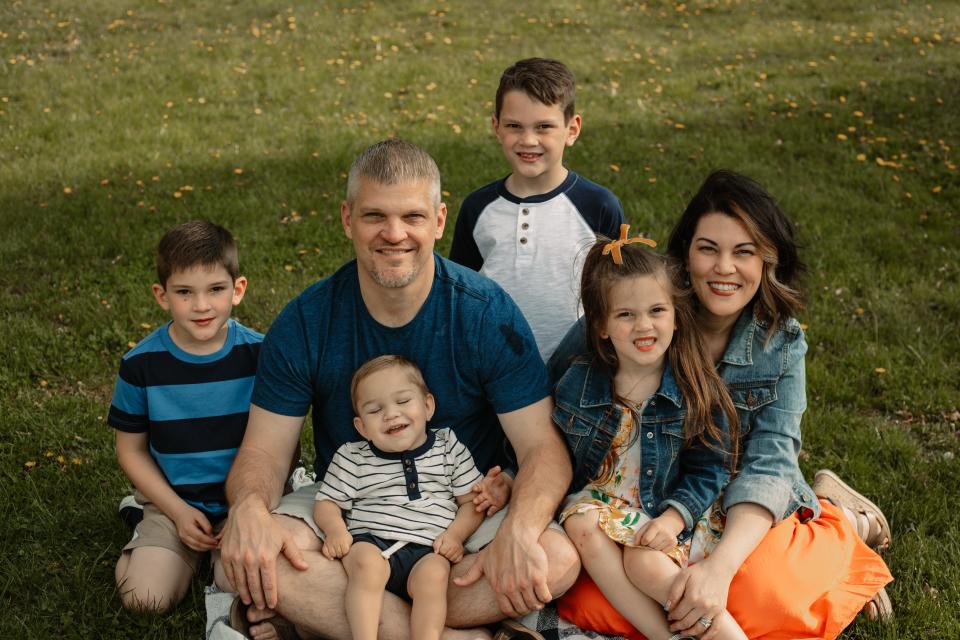
David survived birth and has undergone 12 hours of peritoneal dialysis at home each night, with the goal of a kidney transplant.
But there have been many struggles for David, who is named after a saying the Detwilers believe is powerful: “If God puts a Goliath in front of you, there must be a David inside of you.”
Last Thanksgiving, in a Beacon Journal story update, the family shared that David is blind in both eyes and has cerebral palsy.
The family continues to soldier on for David, who they say continues to amaze and inspire them. Carlla has gotten letters from readers who check in on David.
“David has inspired so many people more than we even understand or know,” Carlla said during a recent interview. “When they think they're having a bad day, they think about David and how he's pushed through and how he's done so well over the last couple of years that he inspires them.”
But care for David has become harder, his parents acknowledge, with a lot of doctor and therapy appointments, in addition to his daily care. David also hasn’t been in the hospital as much this year; however, early Wednesday morning, he had a major seizure at home and had to be rushed to the hospital, where he had several more seizures. David has not had a history of major seizures, and doctors are unsure what caused these, Carlla said from the hospital.
“This poor guy has spent every Thanksgiving at the hospital,” she said. David is being evaluated at the hospital, and while he’s extremely exhausted from the seizures, has shown his little personality by saying ”hi” and “thank you” to nurses, Carlla said.
“David's care has become a lot more complex,” his mother said. “At the beginning of this process, they tell you and prepare you and say one parent really needs to quit their job to care for this child full time. We're seeing that now.”
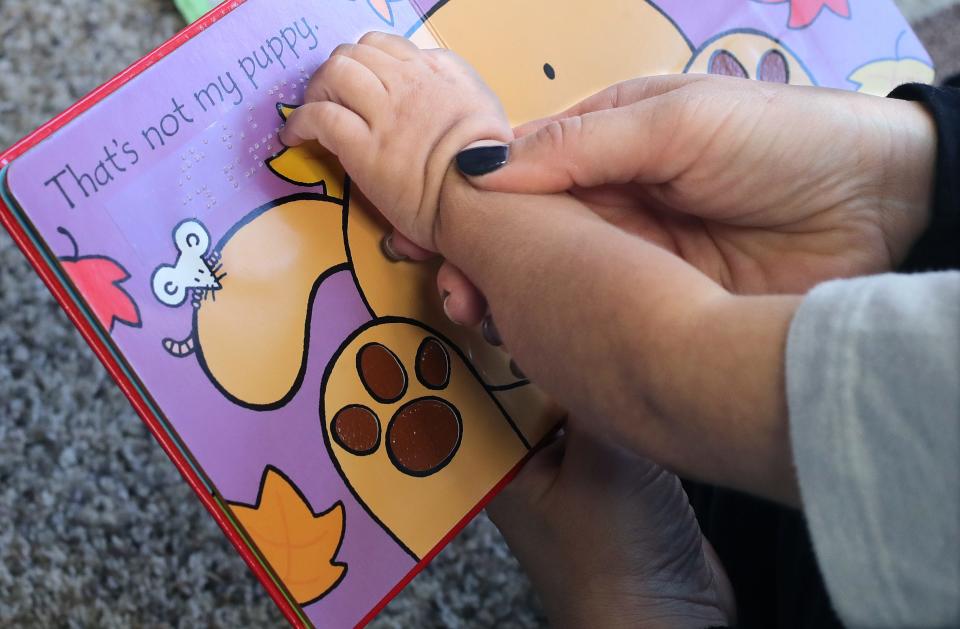
Carlla, who owns Studio 9 Salon and Spa in Munroe Falls, opened a second salon in the past year. Brad, a manager for a general contractor, quit his second job as a longtime radio football analyst for the University of Akron’s games in 2019 to care for David. But sports and other activities for the couple’s three other children have ramped up.
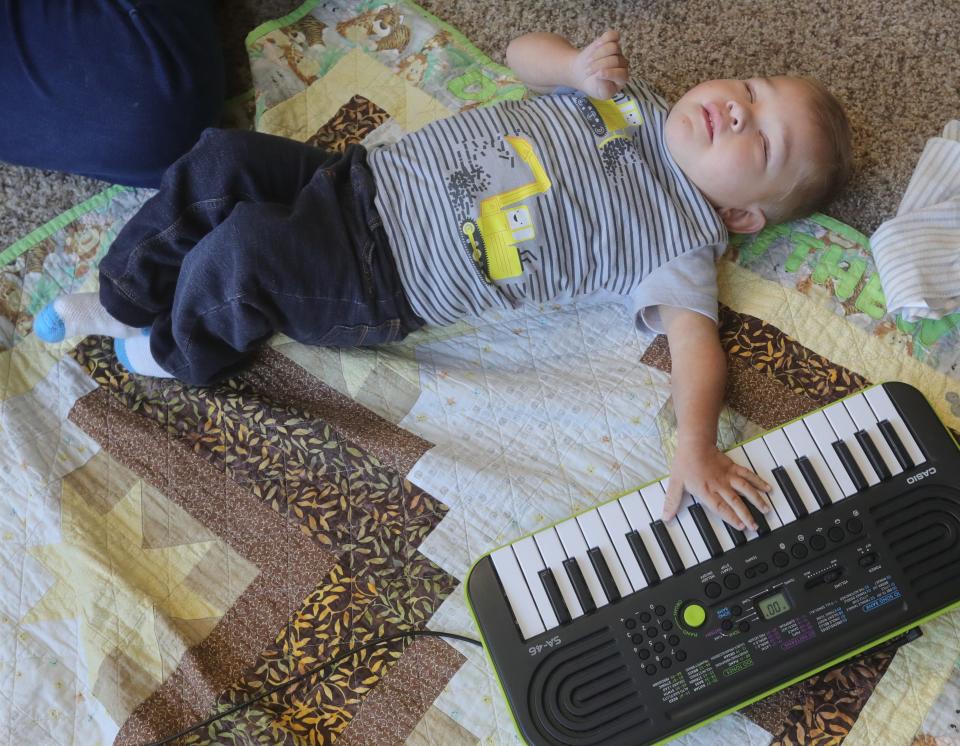
"We have so much more on our plate now as far as now he's going to be turning 3 in April and we have to make some decisions like, ‘Are we sending him to preschool?’ Carlla said.
“I can't even think about anything because we just need to get through this transplant.”
Getting David to and through the transplant isn’t going to be easy, either.
Partnership with Cincinnati
David went through an extensive three-day evaluation process in Cincinnati this fall before the transplant team made the decision to approve him.
Akron Children’s Hospital does not perform kidney transplants, so physicians there work closely with Cincinnati Children’s Hospital. Patients receive their follow-up care after transplant at their home hospital.
Dr. Shefali Mahesh, director of the division of pediatric nephrology at Akron Children’s Hospital, has been coordinating David’s care since Carlla's 32nd week of pregnancy.
“We’re very excited," Mahesh said. "We’re right on our timeline. I was hoping [this year] at Thanksgiving we’d be talking transplant."
David is not the most complicated case that Cincinnati has accepted, but he is still a very high-risk kidney transplant patient, said Dr. David Hooper, the medical director of kidney transplantation at Cincinnati Children's Hospital.
“We do mostly, it seems like these days, referrals for highly complex patients, many of whom have been declined in other centers, because of their medical and surgical complexity,” he said.
“What makes it possible to do a transplant on a guy like him is having, not two or three people involved, but quite literally 15 or 20 people looking over things and bringing their lens to his care,” Hooper said.
That includes three pediatric transplant surgeons on staff, he said.
"There are several programs in the country that would probably approve and attempt a kidney transplant in him, but probably the majority wouldn't. The majority would want him to be bigger,” Hooper said.
Patients with poorly formed lungs are at risk of lung issues that can lead to heart issues, heart failure or death, he said.
“We hope and believe that it will work out. We wouldn't proceed if we didn't have confidence that it would,” Hooper said.
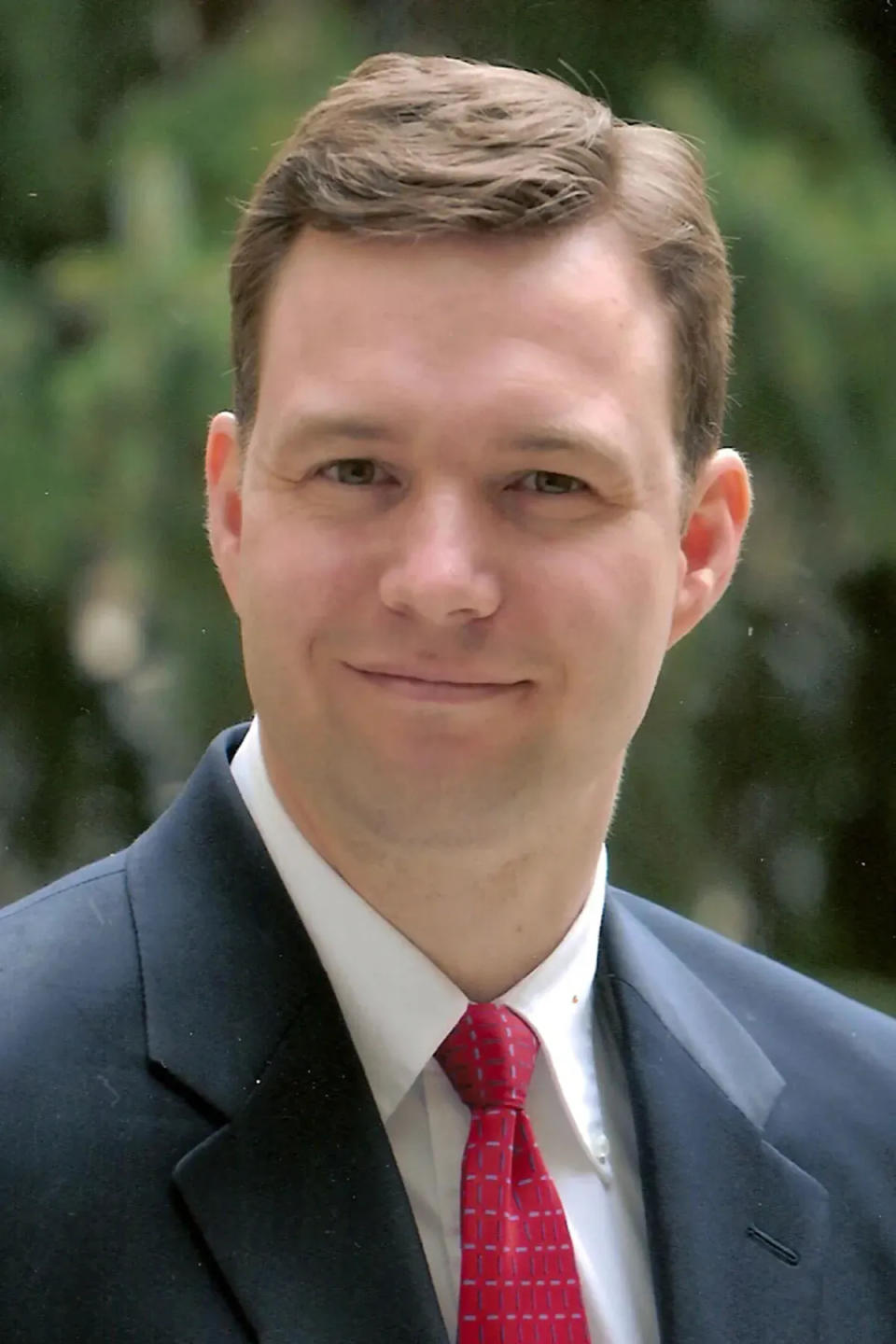
While families’ goals are always to get to kidney transplantation, the surgery, recuperation and time after are very risky, Hooper said.
“In the first nine months after a kidney transplant, the patient is at higher risk of dying than on dialysis," he said. "They're having a major operation. They're having another organ sewed into their body. They're getting huge doses of immunosuppression, which sets them up for to be high risk for fungal infections, bacterial infections, viral infections and then they embark on lifelong immunosuppression. The immunosuppression has side effects.”
Physicians discuss risks and potential benefits frankly with families, Hooper and Mahesh said.
"We do some really amazing things for these children. And it's really beautiful to see them flourish after transplant," Hooper said. "Some do, though, some don't. And those things are hard to experience because we're trying to do the right thing."
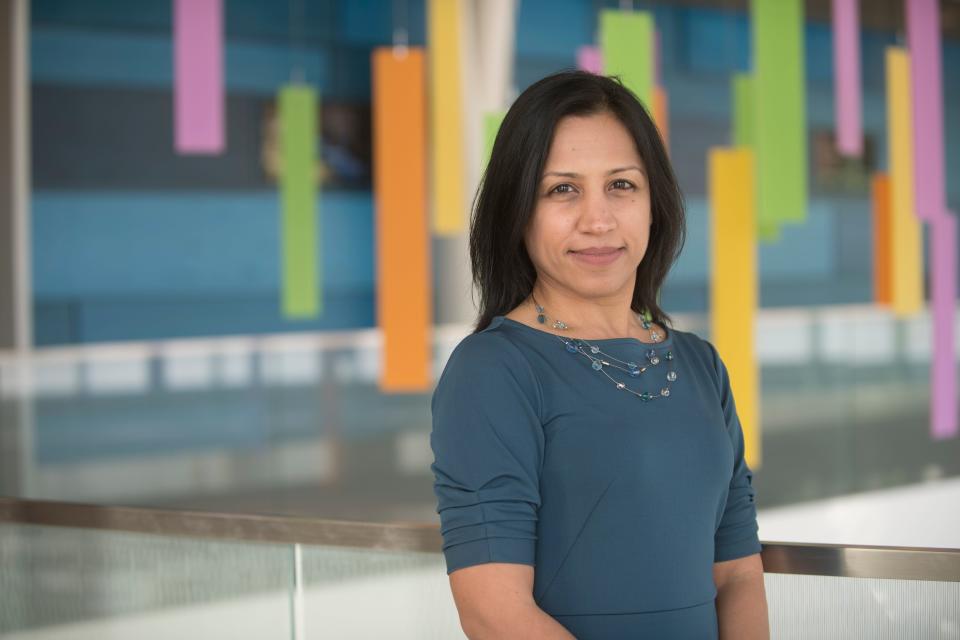
New frontier
Advances in dialysis and kidney transplants have made it possible for kids to survive who 10 to 20 years ago would have died, Mahesh said.
David’s surgery will include transplanting a kidney and creating a ureter that will drain urine directly out of his skin into a diaper. A bladder could be created at a later surgery because David's thimble-sized bladder is nonfunctioning, Mahesh said.
Recently, a little girl whose mother became friends with Carlla when the two women were undergoing amnio infusions for their babies in utero became the first transplant at the center with no bladder or functioning kidney at Cincinnati.
“There's very few patients that have been transplanted in this way and there's a few centers in the country that can do this and nobody really knows exactly how to handle a child that doesn't have a bladder at all at the time of transplant and so we’re working through that,” Hooper said.
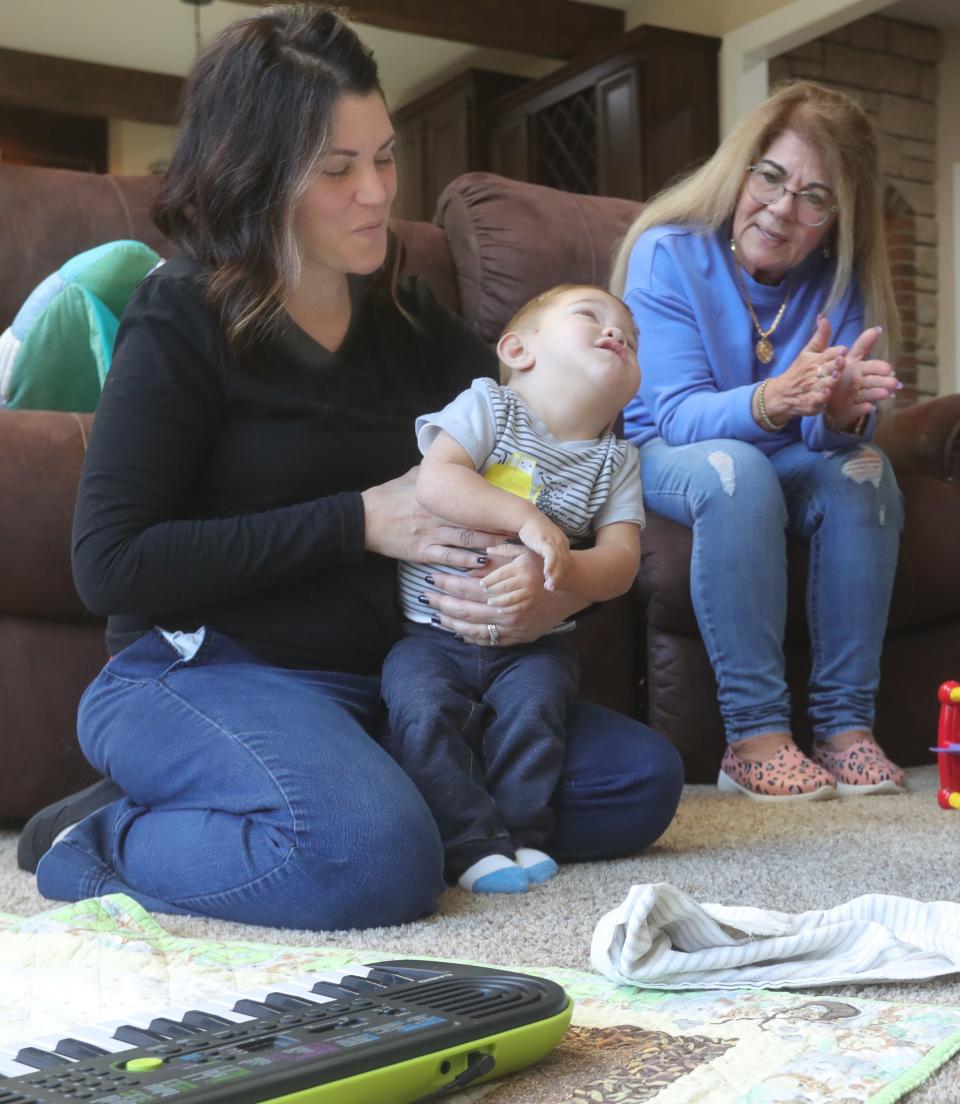
Finding a kidney
Brad recently received the news that his blood type is A and David's is O, which takes him out of the running to donate his kidney directly to David. In general, type O pediatric recipients can only receive from type O donors, Hooper said.
"It's something I would have liked to have done because it's the one thing that I could have done for him while Carlla did all of the amnio infusions to get him here," Brad said. "But it is what it is at this point and I can't control it."
Brad said he's willing to enter the National Kidney Registry paired donor exchange, which could result in Brad donating to someone he matches in exchange for that person donating to David.
If David's aunt and uncle don't match, a wider net could be cast and family friends have said they would be interested in seeing if they match.
A living donor is preferred to a deceased donor since that kidney will last longer, Mahesh said. Also, pediatric patients can and usually do receive an adult kidney, which is why patients need to be a certain size, among other things, before they get approved, she said.
Scared of the unknown
While the goal has been to get David big enough and strong enough to be approved for transplant and Carlla knows the transplant has always been the goal, she is apprehensive. She worries about the pain he will be in through a major surgery and wishes she could jump past the transplant and months of risks as he recuperates and ensures the kidney is not rejected.
But Brad is ready.
“He's going to be a totally different kid. I know it’s going to be a rough six months or so after afterwards,” Brad said. And after, “he's going to grow exponentially as far as speech and physical abilities and just feeling better. ... I look more down the road to see how it's going to change him for the better.”
David’s quality of life will improve, as will the family’s, Mahesh said. Now, they rarely travel and need to be home every night by 7 p.m. to hook David up to his dialysis machine for 12 hours.
“It's not just a game changer for him. It's a game changer obviously for her and I but the other three kids, too," Brad said. "We can go out to dinner again at night, or spend some time with them playing games out in the living room.”
Mahesh said there is also a lot of data that shows significant cognitive and growth developments for children after transplants.
“At the end of the day, we want to increase quality of life and their life expectancy and give them the ability to live a life without assistance of machine,” Mahesh said.
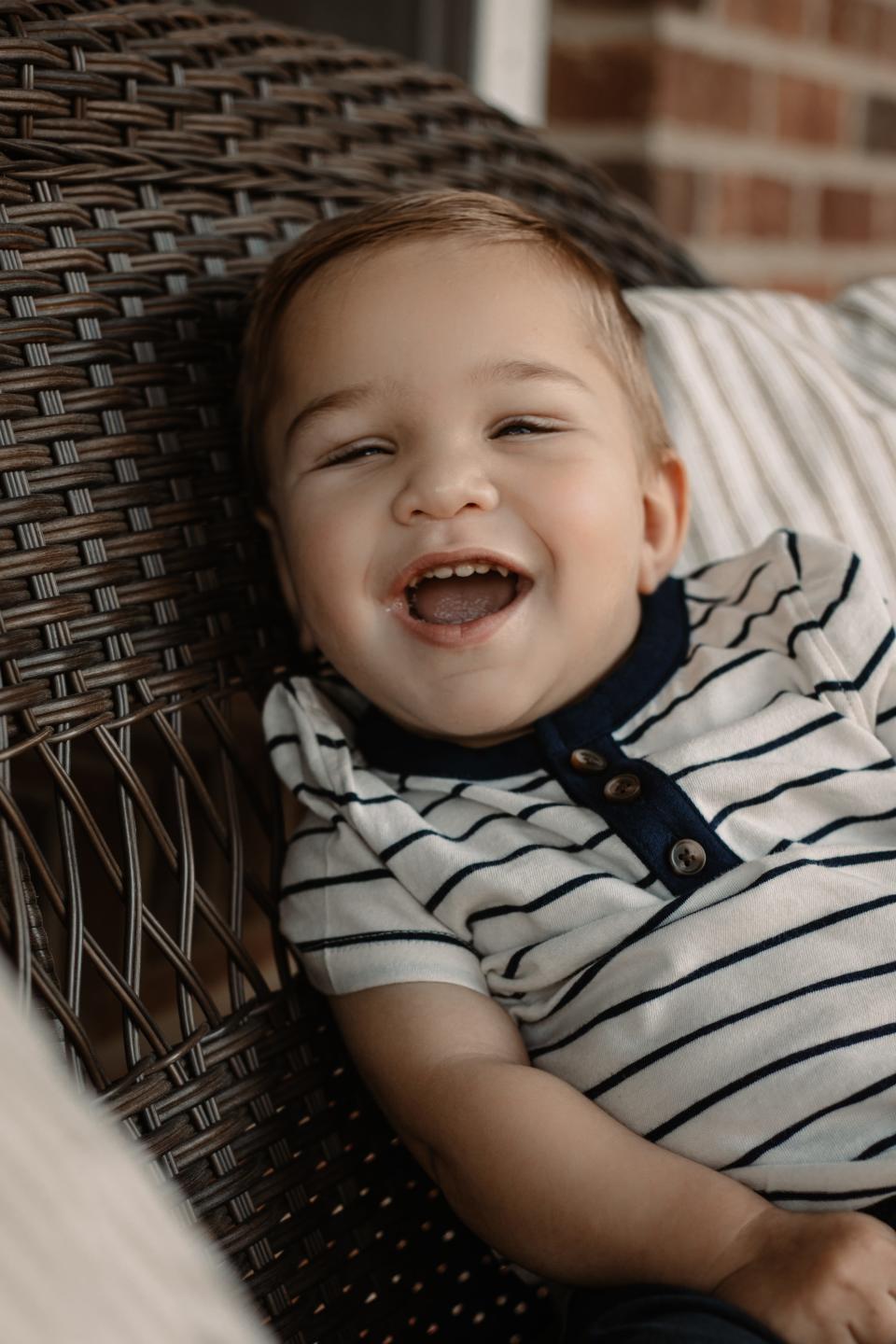
The waiting game
So now the family waits.
They wait to either get word that a living donor match has been approved or a deceased donor match from the registry is available.
If a deceased donor match comes up, David will undergo the surgery immediately. But that decision will be made in collaboration with the physicians and the family.
The timeline could be soon with a deceased or living donor. But Hooper said he’s also seen families who have gone through many potential donors and have had to wait a few years "and that ends up being incredibly discouraging.”
Once a living donor match is found, that could still take five to six months schedule and coordinate the surgery, especially for a case as complex as David’s, Hooper said.
The transplant patient is usually in Cincinnati for about seven to 14 days and then returns to Akron for follow-up care, Mahesh said.
“We're going to keep our fingers crossed now for the next steps,” Mahesh. “It’ll be fun to see him with a kidney ... I’m just excited to see what he’s going to do. He’s already showing interest in tasting food and talking. I’m just excited to see his next phase of life."
‘He amazes me every day’
David is a toddler now. Though he is not physically or cognitively up to par with other toddlers, he is reaching his own milestones. For instance, he just rolled over on his own, which was a huge accomplishment, Carlla said.
His personality has blossomed. He likes to laugh and calls for his siblings, his parents or his "Nonna" (Carlla's mother or "grandma" in Italian).
David also has been sitting up on his own and pulling himself up into a sitting position during therapy sessions.
“He amazes me every day how much he pushes through things,” Carlla said.
“It's been really cool for us as parents to get that feedback now from him and how he’s starting to communicate. That’s what shows us that we did right by him. We made the right decision. David was supposed to be here and he pushed through and has done all of these incredible things that everyone told us he wasn’t going to do.”
How to help
If you are interested in exploring whether you could be a kidney donor, go to the Kidney Transplant Living Donor Page at Cincinnati Children's athttps://www.cincinnatichildrens.org/health/k/donor or call 513-636-7201.
Beacon Journal staff reporter Betty Lin-Fisher can be reached at 330-996-3724 or blinfisher@thebeaconjournal.com. Follow her @blinfisherABJ on Twitter or www.facebook.com/BettyLinFisherABJ. To see her most recent stories and columns, go to www.tinyurl.com/bettylinfisher.
This article originally appeared on Akron Beacon Journal: Baby David Detwiler gets good news; kidney transplant approved

